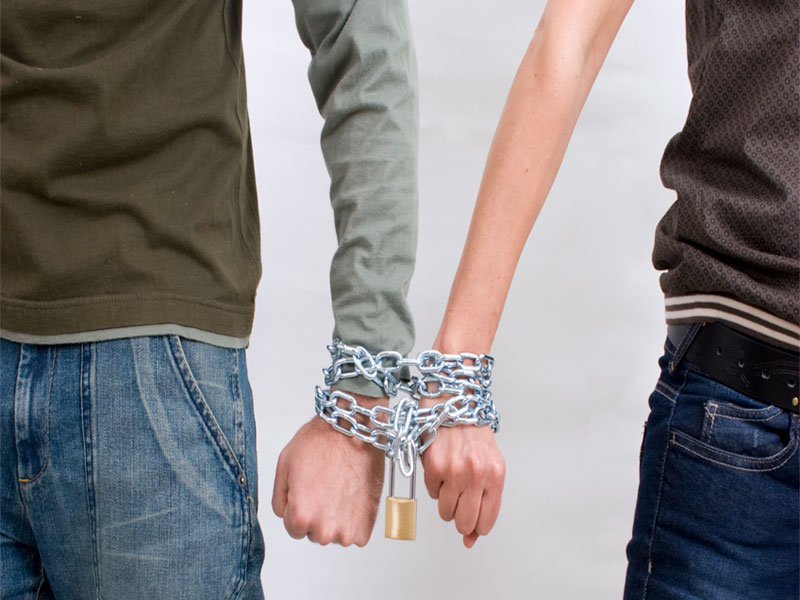Co-Dependency

Co-dependency occurs when another individual is affected and ultimately controlled by the addict’s addictive behavior. Codependency is a learned behavior that affects an individual’s ability to have a healthy, mutually satisfying relationship. It is also known as “relationship addiction”. Addiction is commonly believed to be related to alcohol and drugs, but now can be attributed to food, sex, gambling, anger, emotional problems of video gaming. Codependents gradually allow the addict to define reality. Loved ones try love, acceptance, security, and approval but have to adapt these behaviors in a way that the addict wishes. This excessive care giving behavior tends to foster even more dependency on the part of the addict. Codependence is helping someone who is choosing not to help themselves.
Enabling behavior occurs when a codependent helps or encourages the addict to stop but inadvertently inspire the addict to continue using drugs, either directly or indirectly. Examples of individuals involved in enabling behavior are a spouse hiding the addict’s disease from neighbors or extended family. Another is finding the addict’s alcohol or pornography or food and destroying it which only causes the addict to verbally commit to stop, but in reality, they continue and learn to hide their paraphernalia better.
Learn to Say NO without explaining yourself.
Persons are codependent because they protect addicts from the consequences of their behavior. By doing this the addict is unable to learn where the addiction can take them. He has not had to face life in the streets or the loss of his family. These addicts are loved by their parents, significant others and children who do not want to lose them to disease, homelessness and, possibly, death. Loved ones want peace in the relationships, don’t want anger, and are blamed for the addict’s problems, experience guilt and low self-esteem which, cause them to try to help the addicts even more. The irony is their love and behavior towards him could lead to the very consequences they fear. Therefore, the way they protect and nurture the addict also nurtures the addiction. This is codependence. Loving someone so much we literally love them to death.
Steve Murphy, LCDC



